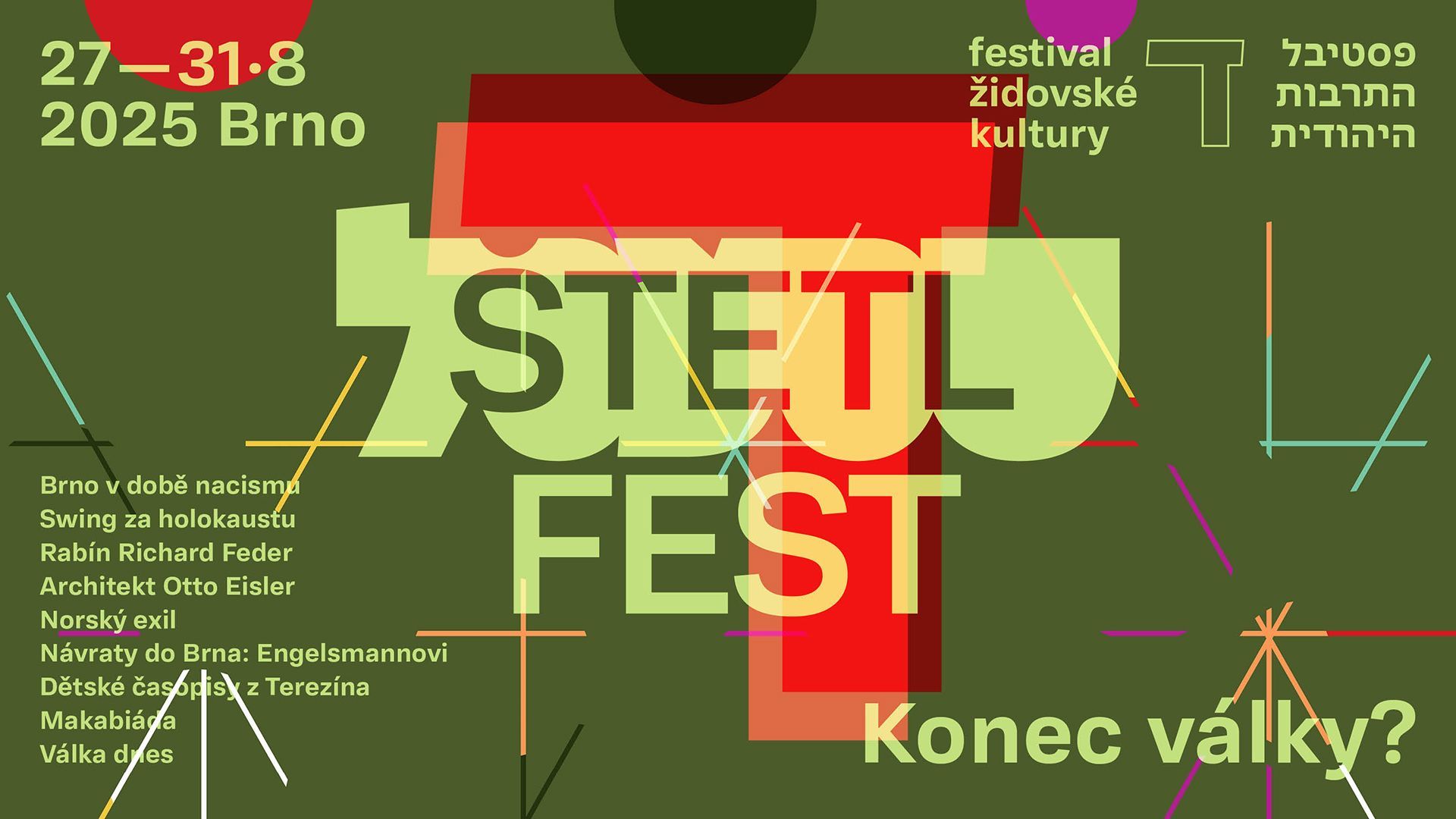ŠTETL FEST

ŠTETL FEST 2025 – The End of the War?
The fourth edition of the international multidisciplinary festival of Jewish culture ŠTETL FEST took place at the turn of August and September 2025 in Brno and confirmed its position as the largest presentation of Jewish culture in the Czech Republic, bringing together Brno-based and national institutions at a number of sites connected with Jewish history. The main theme of the festival confronted the 80th anniversary of the end of the Second World War under the title “The End of the War?”, opening questions of historical memory as well as contemporary armed conflicts, their causes, warning signs, and possibilities of prevention, while also focusing on post-war reflections on hope, the renewal of life, and reconciliation. The programme recalled the fates of Brno personalities who found refuge in Norway through the organization Nansen Aid, explored the legacy of the post-war Brno rabbi Richard Feder, and addressed the importance of education, children, and community life before and after the war through lectures, discussions, architectural walks, and the laying of Stolpersteine. The festival also included workshops devoted to Jewish traditions, a sporting Maccabiah, an extensive educational programme inspired by children’s creative work in the Terezín ghetto, and a thematic focus on swing music, resistance activities, and the Terezín ensemble Ghetto Swingers, alongside lectures on Judaism and contemporary religious thought. The music programme featured Czech and international performers, including the swing orchestra Melody Makers, and the festival was traditionally complemented by community gatherings rooted in Jewish practice, such as the lighting of Shabbat candles and a shared Havdalah.